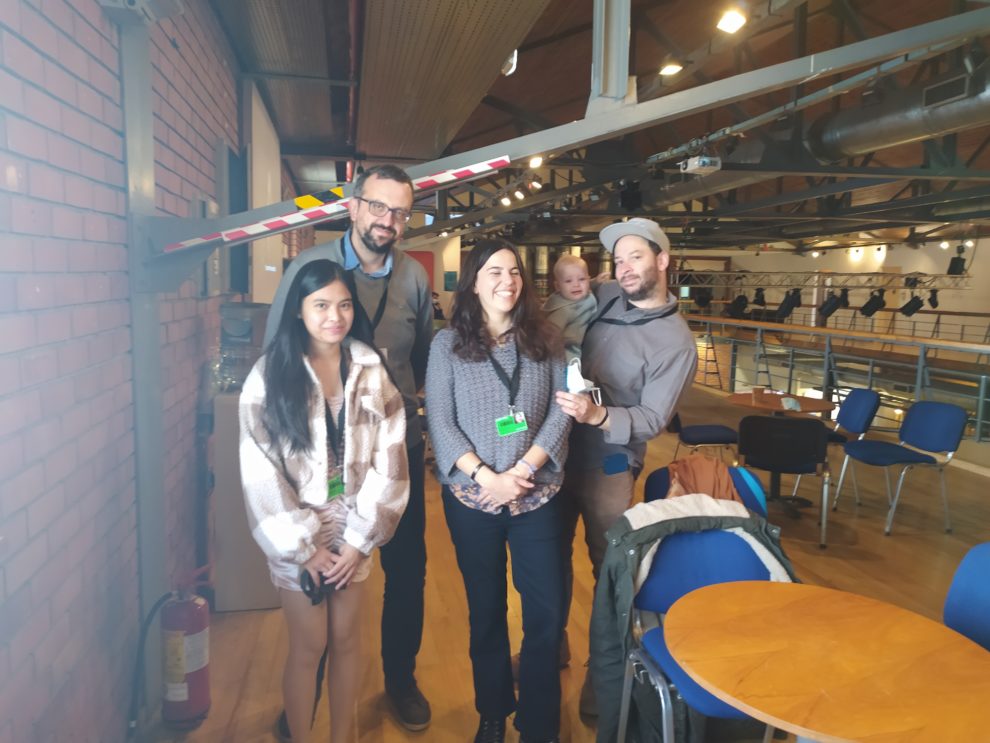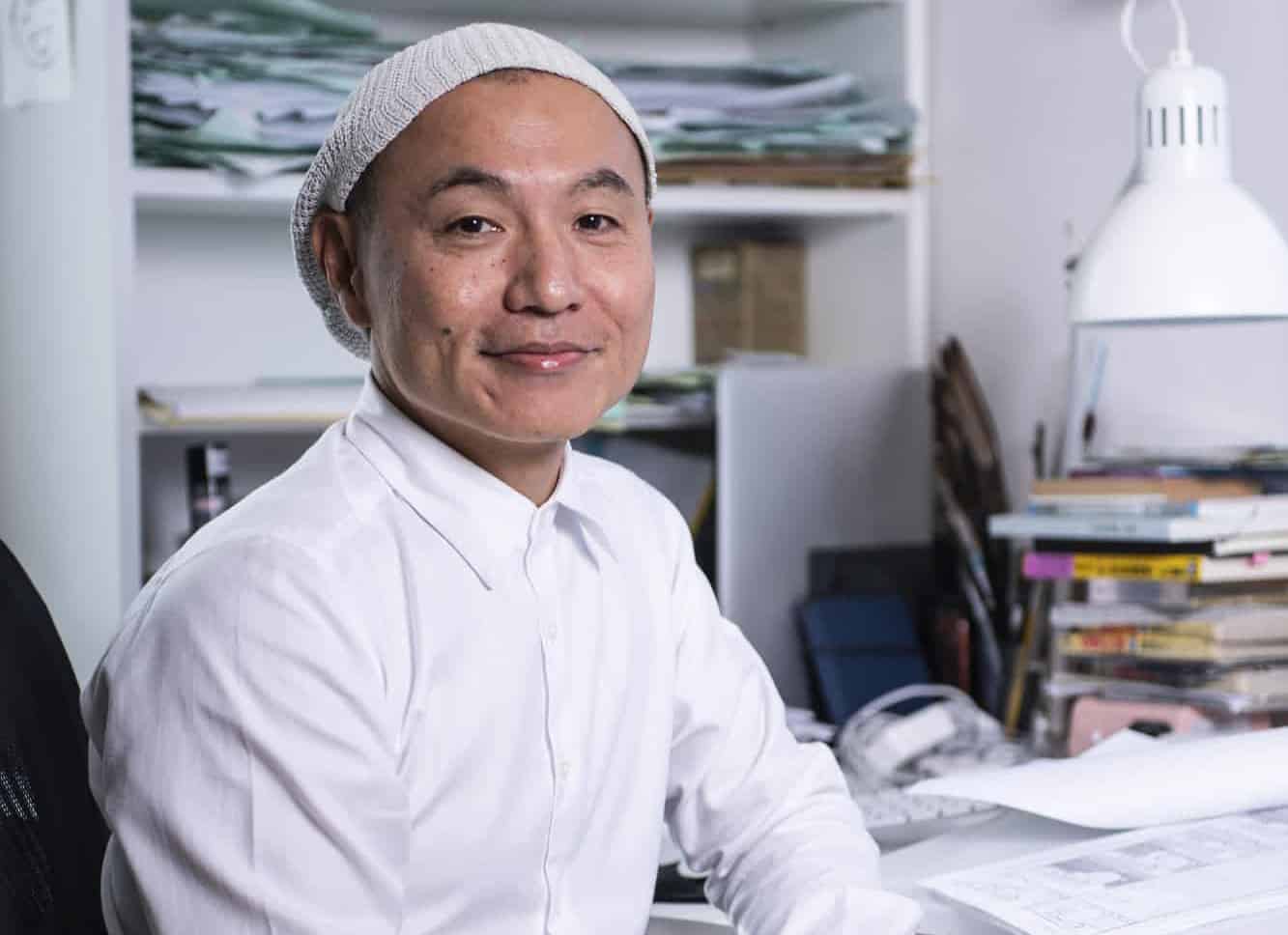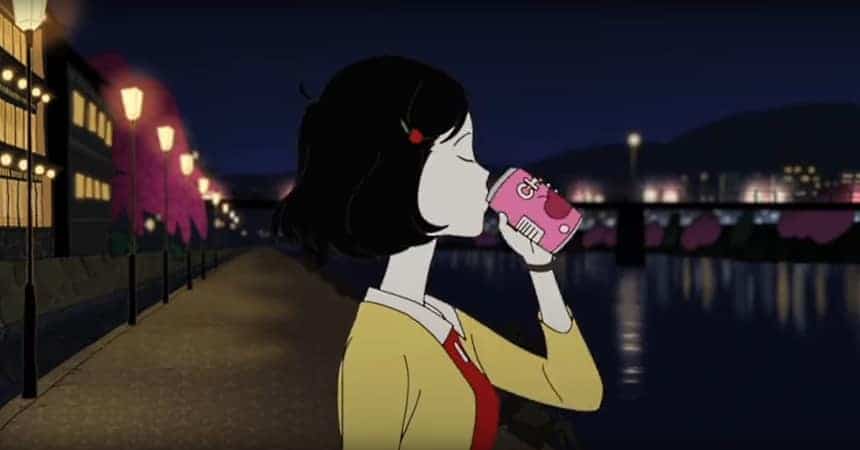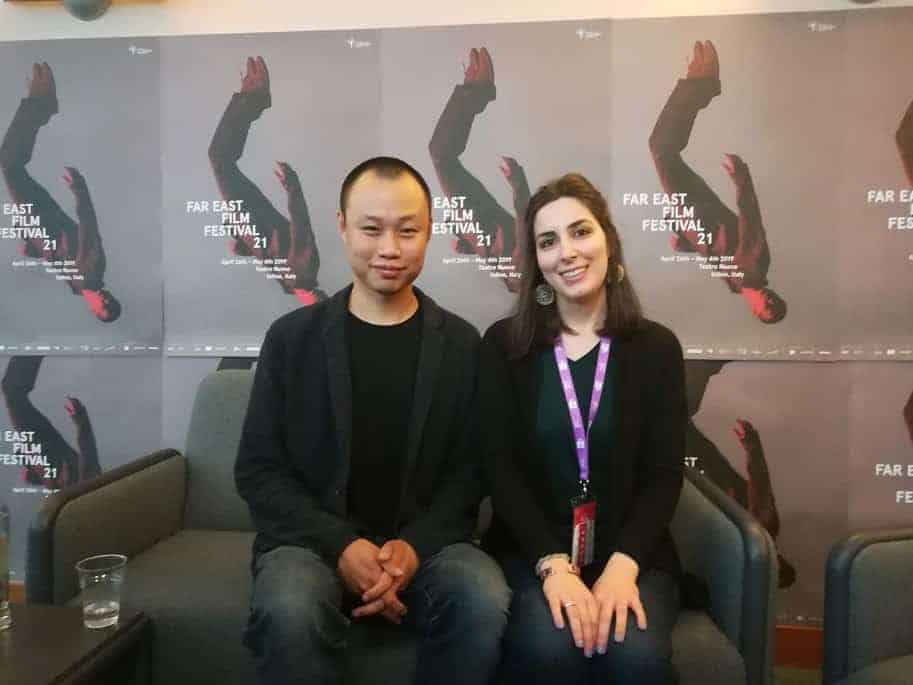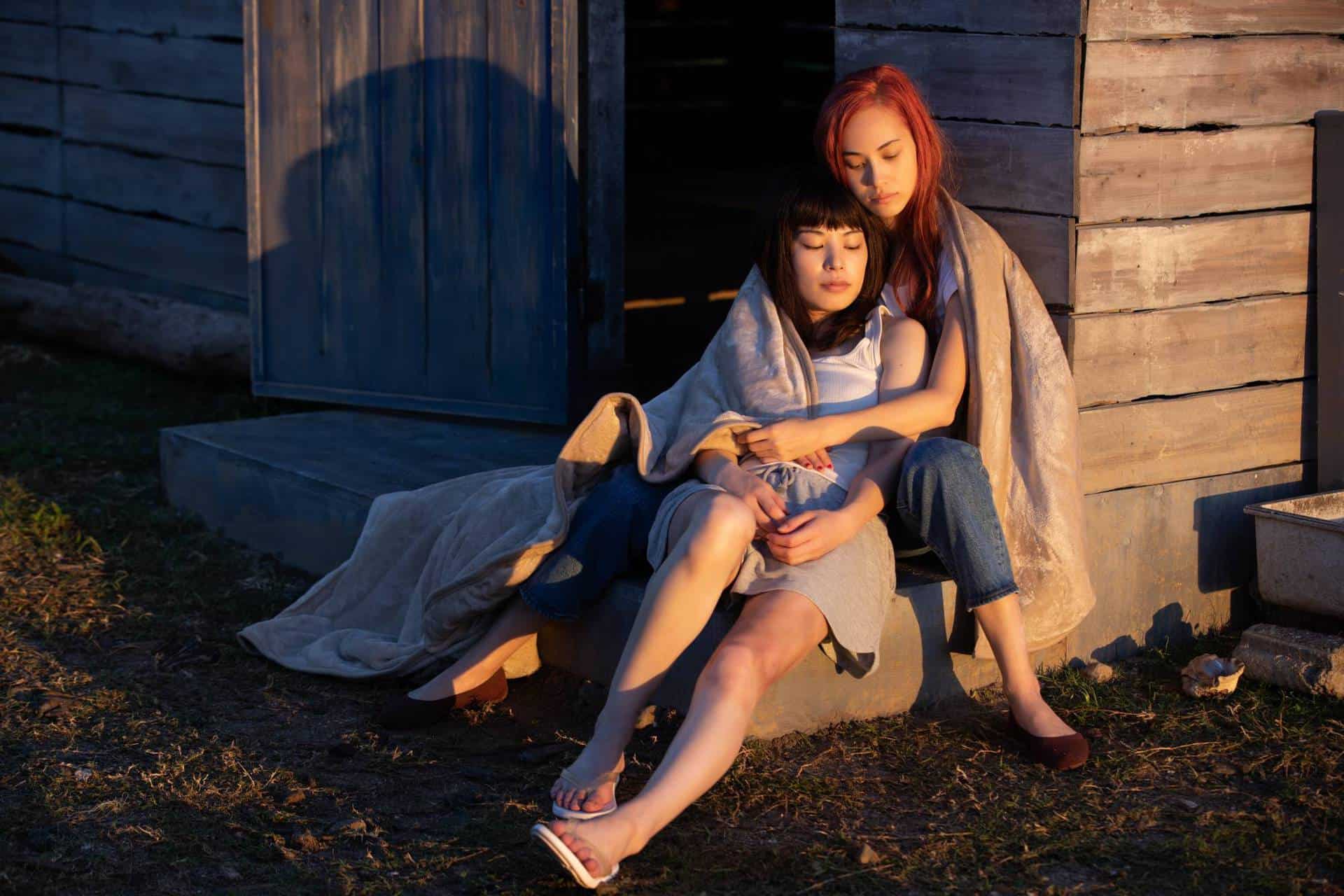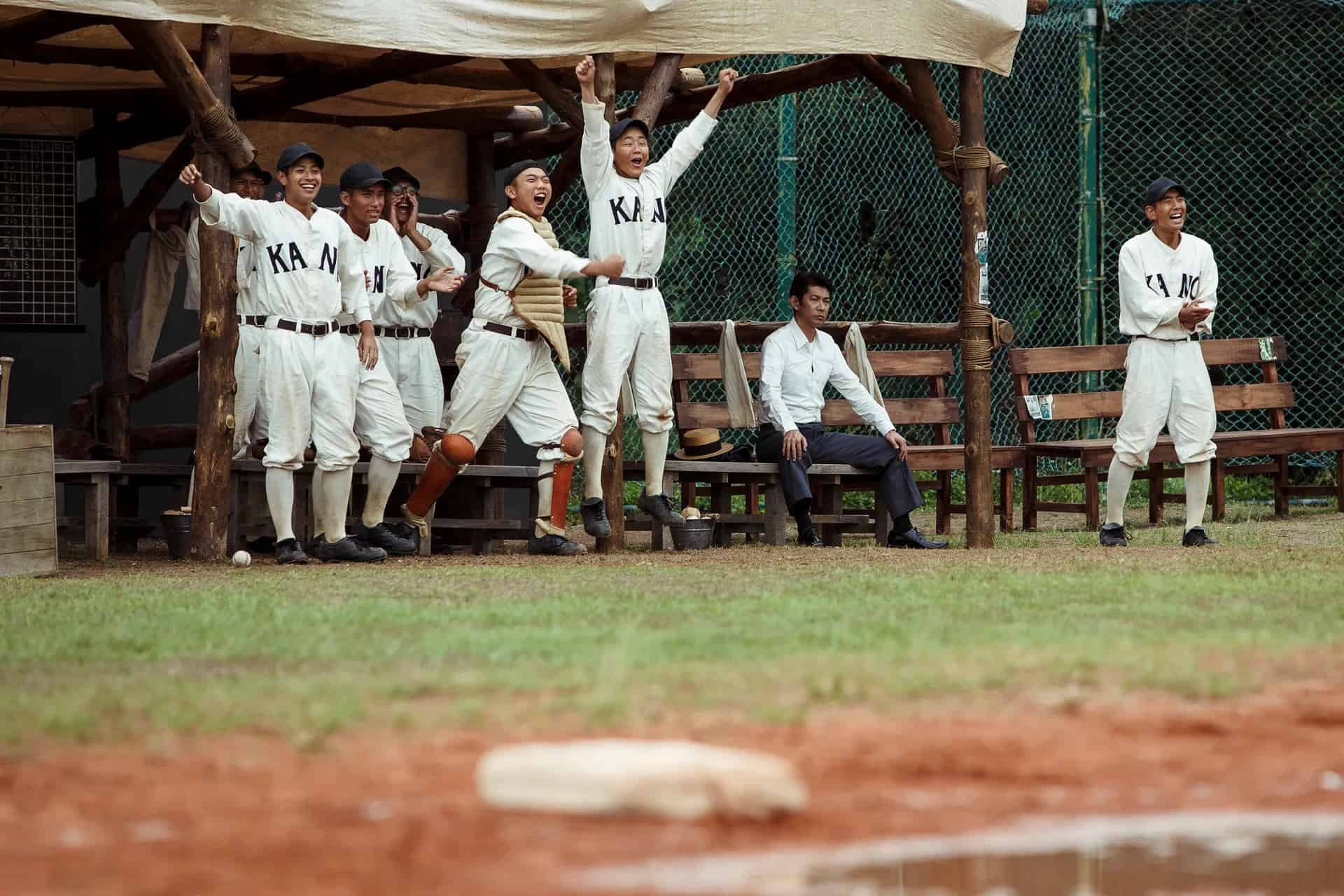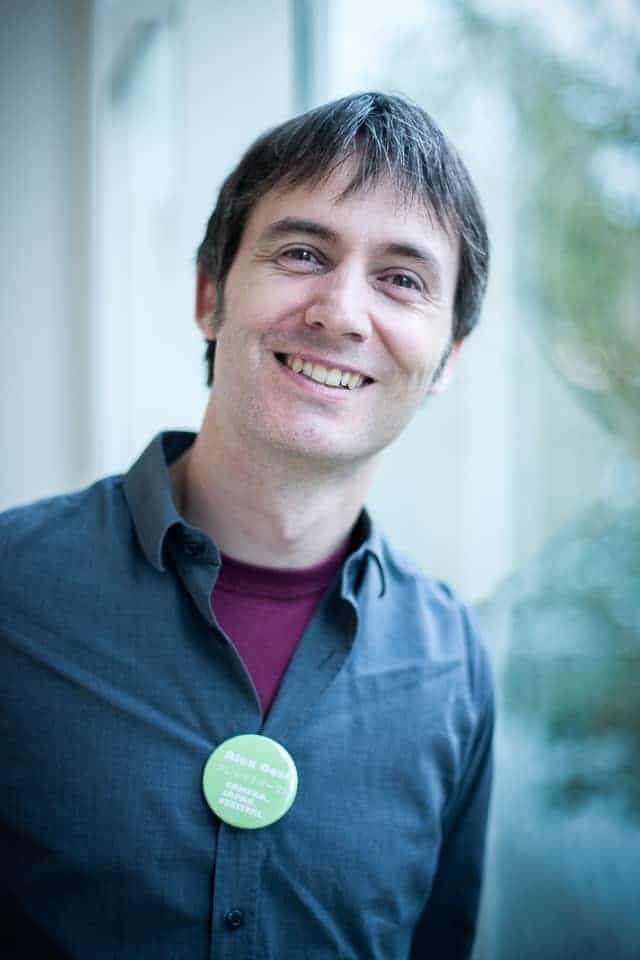Araceli Lemos is a director, writer, and editor born in Athens, Greece, currently based in Los Angeles. Her debut feature, “Holy Emy” premiered at Locarno IFF 2021, where it won the Special Mention of the competition section “Filmmakers of the Present.”
Abigael Loma is an actress who made her debut in “Holy Emy”.
Joel Garber is a consulting producer in “Holy Emy”, and also a script writer, director, editor and actor. Other works of his include “Connie” (2017) and “Scenes from a Real Marriage” (2018).
On the occasion of “Holy Emy” screening in Thessaloniki International Film Festival, we speak with them a
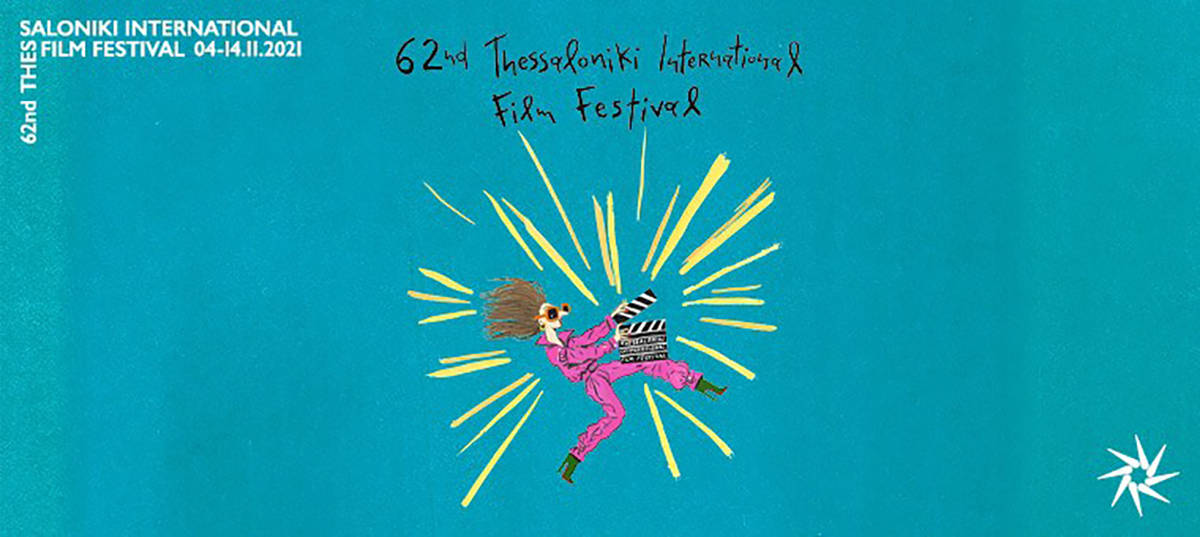
Can you tell me a bit about how you ended up shooting a film about two Filipino sisters in Greece?
Araceli Lemos: In the beginning, the script was a theoretical idea about two sisters, which actually came from a short story from Japanese writer Yoko Ogawa, who was writing about her pregnancy and how her sister was observing her, in a way that could be described as clinical. The description of this whole endeavour felt like there was some kind of danger there, so I was trying to imagine the character, who is that girl that sees a pregnancy, which is usually perceived as something positive, with such detachment. I was thinking that maybe she feels jealous, maybe she wants to keep her sister all to herself and maybe she has her own path to follow, but she cannot do so because she is so obsessed with her sister. In the short story, the two sisters are by themselves, they do not integrate with society, they have no friends, so I thought that maybe, since I want to place this story in Greece, it would be interesting to place them in a small community, where people come and go, and they can stay hidden. At the time, I was living in Ampelokipoi, where most of the Filipinos in Greece live. Sometimes, you go out in the area and you feel like you are in the Philippines. So I thought it would be nice to place the story there, but I was not sure if I could make it happen, maybe no one would want to be in this film. However, I started going to the church there and when I created the first casting flyers, people started coming to me, and so I realized that there was interest. We ended up doing a small audition at the Filipino School of Athens
Abigail Loma: Me and my friends thought it would be fun to audition for the film, but after the audition, I kept in touch with the casting director, visiting the office where we continued rehearsing and in the end, I got to do the film.
So, this is your first movie? Do you also live in Ampelokipoi?
Abigail: Yes, but I live in Zografou actually, very close to Ampelokipoi.
How was the experience of being on film for the first time?
Abigail: It was challenging, because it was my first time, and I did not know what emotions to portray, so I just trusted Araceli, who supported and guided me throughout the film.
Did you enjoy the whole thing though?
Abigail: Of course, because everyone involved was very comfortable being with.

How was your approach with the actors, did you give instructions all the time or were you letting them improvise?
Araceli: The cast was a mix of non actors and actors, with the latter also being of varied experience, for example some of the Greek actors have much experience from theater, while the Filipino actors have much experience from cinema, although Ku Aquino is also a theater actor. Abigail is a first time actor, while Hasmine Killip who plays Teresa, Emy's sister, was a “discovery”, she does not have any kind of classical training. Therefore, my approach was very different, according to each actor. For Abigail in particular, I did not give her the script, so she didn't have the burden of the whole arc, which could be very intimidating. She knew very well, though, who Emy is and we did a lot of rehearsals in order for her to really know the relationships, how she feels with Argiris, Miss Kristina etc. We shot the scenes without having analyzed the script so much, that was our approach.
How was your cooperation with Angeli Bayani, who is a famous actor, particularly through her collaborations with Lav Diaz?
I told her that the film will include the Filipino community of Athens, and she read the script and she was very intrigued on discovering this particular diaspora. For her, it was an interesting story. I asked her how she felt about cooperating with non-actors and she said that she loves that, and that she has cooperated with non-actors in a number of the films she appeared in, because Lav Diaz works a lot with non-actors. There is a moment I remember very intently. When we were shooting the debut party, I told her a little bit about the scene, but because she is a person who really listens and is very receptive of the information, when we would shout “Action!”, she would really blossom. She took in all the information I gave her and she created a truly three-dimensional character. To come back to the party scene, everyone else involved were already part of the community while she had just arrived, and I was afraid that maybe she would not fit in, but immediately she started becoming part of the “space”, and that really impressed me, how she just came and made all these non-actors feel like they were friends of hers. Her experience in such a kind of filmic situation was more than evident.
And how was your cooperation with her?
Abigail: We talked a lot and she was really kind and instructive on how to act on particular scenes, she was very helpful.
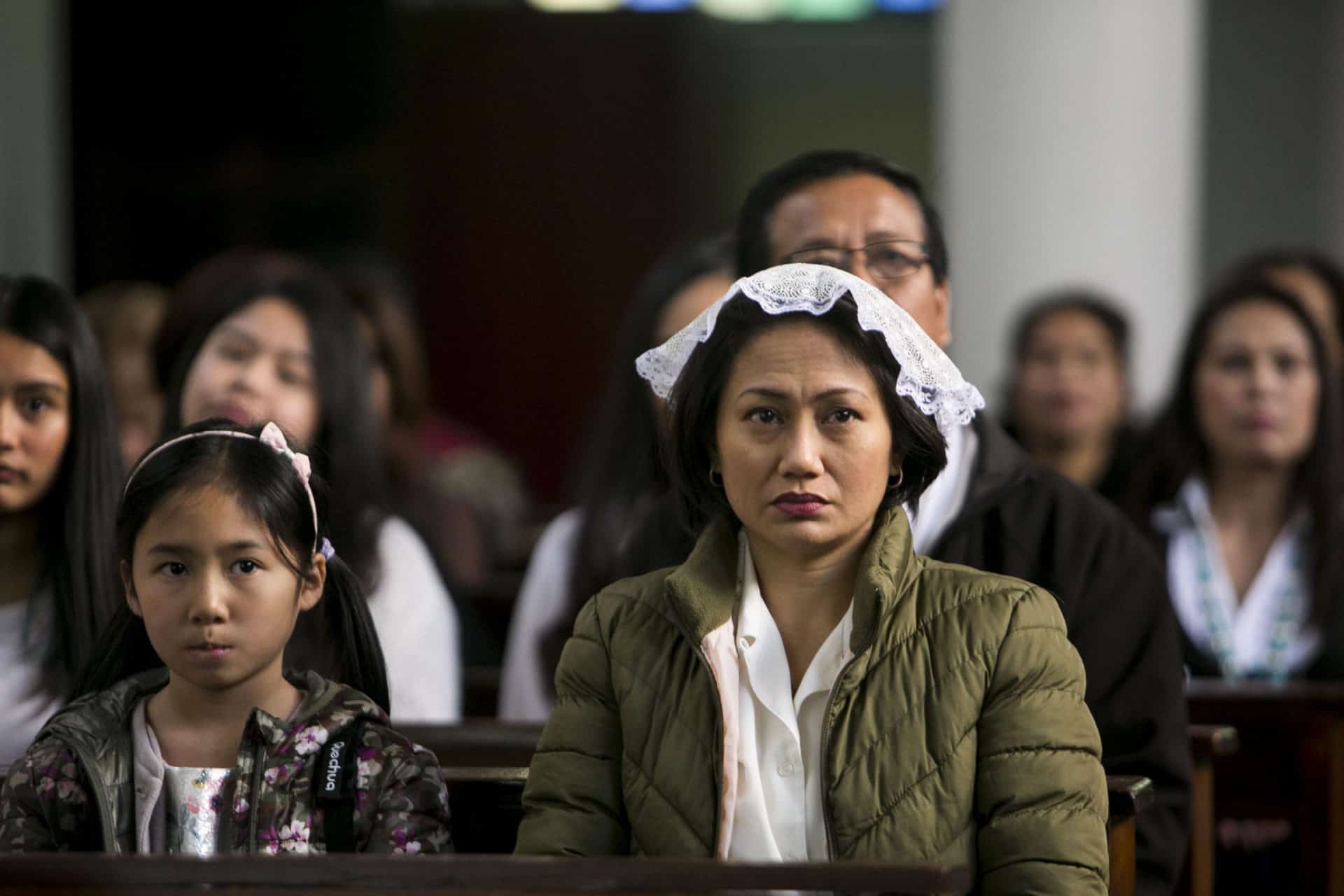
Can you give me some details about the rest of the cast, Ku Aquino in particular, who plays the other “doctor”?
You probably remember him from “Birdshot”. I also auditioned other actors, but when I met with him on Skype, he was thinking about the scene of the healing, which was a big challenge for me, who would be able to portray the physicality of the hands. He knew that this was a key scene for the character, because we perceived the character as a “magician”, a person who can “sell” a magic trick. So, in the audition, he showed me his hands and he started moving them, and immediately I thought, “This is Luis!” The other thing he brought, is that before, I had an issue with the face of the character, I could not imagine how he would look like, but I liked the fact that Ku presented him with a bit of charm, a bon viveur value, as a guy who really loves living in this house, drinking wine and smoking, and Ku really brought this earthy sensuality to the character, he had a really big presence.
Which was the most difficult scene for you?
Abigail (laughter) Everyone knows this. The baptism scene was very difficult for me because I had to go back and forth in the water and I did not know if the emotions I was portraying were right, so I felt really pressured.
Araceli: She drowned a lot of times, she was really drowning.
How about the scene where you cure the girl?
Abigail: That scene was also difficult, particularly because I had to touch her and I did not want to hurt her in any way. Also the one with the baby, because I had to carry a real baby, and I was really scared (laughter)
Araceli: Dealing with a real baby in a movie is something unexpected, I also felt you were a bit scared with the cat scene also, whenever you had to interact with something living…
Abigail: Yes, every time I had to carry something (laughter)
Araceli: The one with the seagull also. I felt though, that the fact that these scenes were challenging was good for the acting, because I think she did not have to overthink them, if she is performing well. The real challenge made her forget the stress of performing.
Abigail: Yes… (laughter)
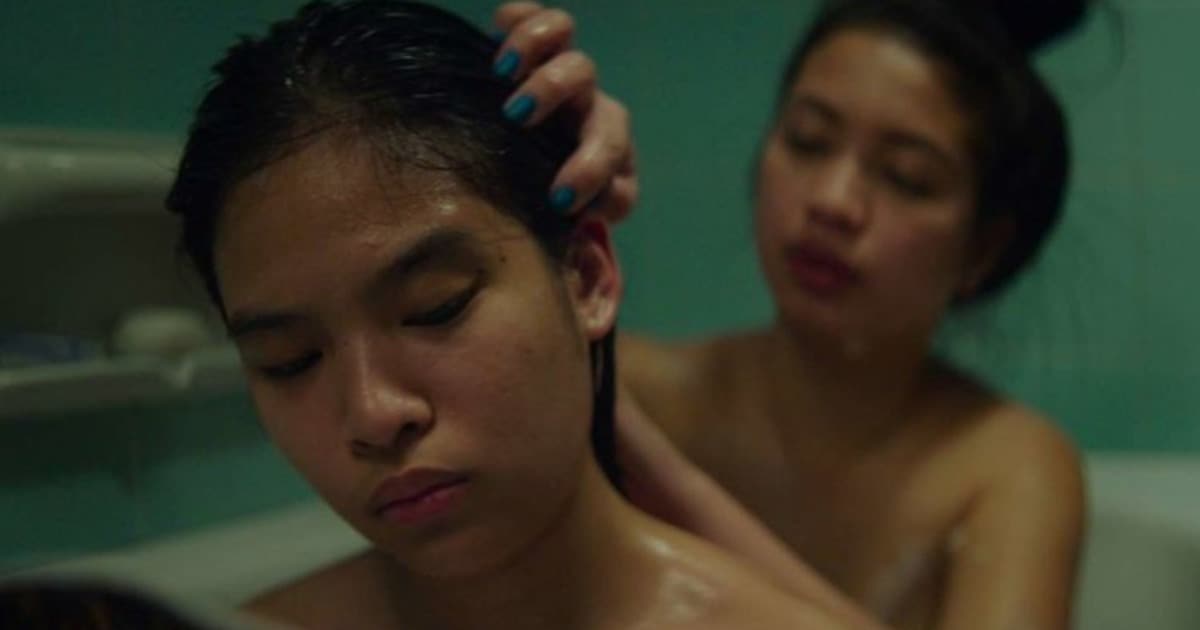
Can you tell me a bit about the scene with the dead fish in the sea?
Araceli: We discussed it a lot, we were thinking of many different approaches, how to make this big production moment, physical. Initially, with my production designer, we thought of shooting it with fake fish, but it turned out it was as costly as doing it with real fish. We had a very elaborate plan but then we ended up doing part of it as we had designed it and part of it with visual effects.
Why fish though, which are all over the film?
We thought fish as symbol, and also something that is very linked to Piraeus and the port, and that the Philippines and Greece have an intense connection with the sea in common, because a lot of Filipino sailors came to Greece, got a visa and that gave the opportunity to their families to also come to Greece. I like the fish as an element that highlights this connection. I also liked it as a symbol of Orthodoxy and its connection with Jesus Christ, but also the fact that in paganism, it is a symbol of fertility. It really encapsulated the themes of the film and I also liked the idea that Emy sees all these fish and in her mind, she creates her own associations, particularly regarding Argiris who is a fishmonger. I thought that I could portray all the things she has in her mind through fish.
So, did you eat a lot of fish during your breaks?
Araceli: We ate a lot of fish, Hasmine in particular (laughter). We also had some issues there, because fish tasted great but also smell a lot, and we had to deal with that (laughter).
Can you tell me a bit about the Filipinos in Athens? How many are there, what do they do?
Abigail: I am not exactly sure how many they are, but there are a lot, particularly in Ampelokipoi. Filipinos here are very religious, on Sundays they always go to their church, Catholic or Christian. They also celebrate Philippine Independence Day, in Zappeio for example. It is a very big celebration, with bands and music, competitions, and people in Filipiniana clothes etc.
Araceli: I went to a voice competition organized by Filipino channels in Greece and it was huge, thousands of people were there.
Abigail: A lot of people still work as domestic helpers, but the people of my generation, I am 21 years old, want to work in business, IT, and tourism, a lot of them want to work in hotels, restaurants, etc.
Araceli: I also wanted to say that in the film, we had people from all over the world, like Joel here, who is from the US, and my co-writer and my DP, who is Korean (Kim Ki-jin) all of us met in Los Angeles, and we shot a film in Greece, which resulted in multiculturalism on set, with different languages and cultural references, which I thought also translated in the film. You can hear English, Tagalog and Greek in the movie, which I felt really added to the whole aesthetics; it was a problem with all the translations going on, but it was a beautiful one. As we watch the film with different audiences, I realize that some things are lost in translation, but that is also part of the experience, the different interpretations of what is happening.
Are the church services as in the film?
Abigail: Yes, there is dancing and singing, and even jumping
Araceli: One that I attended, there was even a band playing.
What is your relationship with religion, do you believe in God?
Abigail: Of course I believe in God (laughter), although in miracles, like the one with the healing performed in the movie, I have not seen it, so I do not believe in it.
Araceli: I was raised in a non church-going family, but I always liked studying about religion and I was always fascinated with the idea of faith, but not through a specific religion. I was mostly interested in issues like why we are going to church.
From the Filipinos I have talked to, it seems that there is a connection between everyday life and the supernatural. Is that the case with you also?
Abigail: I think it is still a practice in the Philippines, particularly the different kinds of healings. I am not sure if there are Filipinos who still practice here though.
Araceli: There are Filipino healers in Greece actually, I talked to some people who told me they have the gift of giving healing massages, or people who can take away negative energy, like when the Greeks give you the “evil eye”. Some churches accept these things, others condemn them. The type of healing Luis practices in the film, is a very specific one, which I think is condemned in the Philippines. It was also portrayed in the film “Man on the Moon”, because Charlie Kaufman is the most famous person that went to the Philippines to undergo this type of healing.
Can you give me some details about the baby scene?
I knew that it was going to be challenging because I knew we were going to use practical and visual effects and there were a lot of moving parts. The initial plan, with Prokopis Vlaseros who does SFX on set, was to work with a fake baby. But we ended up with a very collaborative baby, who looked like dead when she slept (laughing). So we extended the time of the shooting a bit, and when she fell asleep we created the effect.
How about the moment she wakes up?
That was easier, because that is how she is when she wakes up (laughter), it is difficult to keep a baby from becoming agitated.
But how does this thing work, do people actually bring their babies to auditions?
Joel Garber: Yes, and we have to be very careful with them, obviously.
Araceli: Yes, but because everyone on set was very professional, essentially before the shooting, we had thought of everything that could go wrong, and we were fully prepared. And yes, my first and second AD did a casting and they did a very good job. We had to explain to the people who brought their babies a lot, exactly how the day was going to be, because the babies have their routines, and you do not want to have a crying baby on set.
How did you make the blood?
It was a collaboration between Prokopis Vlaseros and Ioanna Lygizou who is a makeup artist but also a specialist in creating blood. Prokopis prides himself for creating his own blood.
Joel: You can actually buy theatrical blood.
Araceli: Yes, but Prokopis creates his own, because he wants it to look good on cinematic terms, on film. We did a lot of tests to make it look dark and red, because real blood is not so cinematic, it looks orangy. Also we did a lot of tests about the speed of it dripping from Emy's eyes. Abigail was tortured actually, because we used a special blood that does not hurt the eyes, but it would sting.
Abigail: Yes, after a point it would sting, it would bother my eyes. It was difficult keeping in the performance, even keeping your eyes open is difficult.
Since you mentioned the eyes, there are some scenes, particularly when you are looking at Argiris, that you seem to truly hate him. How did you manage that?
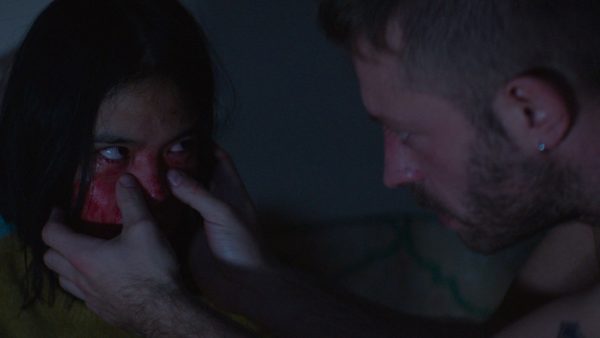
Abigail: I just went with the moment, they told me that Argiris is a bad man, so I just tried thinking about someone I really hate and went for it. I am also a bigger sister, and I am very protective of all my siblings but particularly my little sister and I also channeled that feeling.
Can you also tell me a bit about the scene in the bus?
It took many hours to shoot because it was a tracking shot in a bus that moves and we had to have a very smooth operation. We had a big loop in order to have exactly what we wanted outside of the windows and the light and the reactions of the non-actors. And all of this was to be combined with Abigail having this difficult situation with the blood in her eyes. We had a very elaborate system including a rig for the crying, which, however, kind of obstructed the performance. Therefore, after 5 hours of preparation, we decided to forget it and go with the makeup blood, so that Abigail could be more present and in her body.
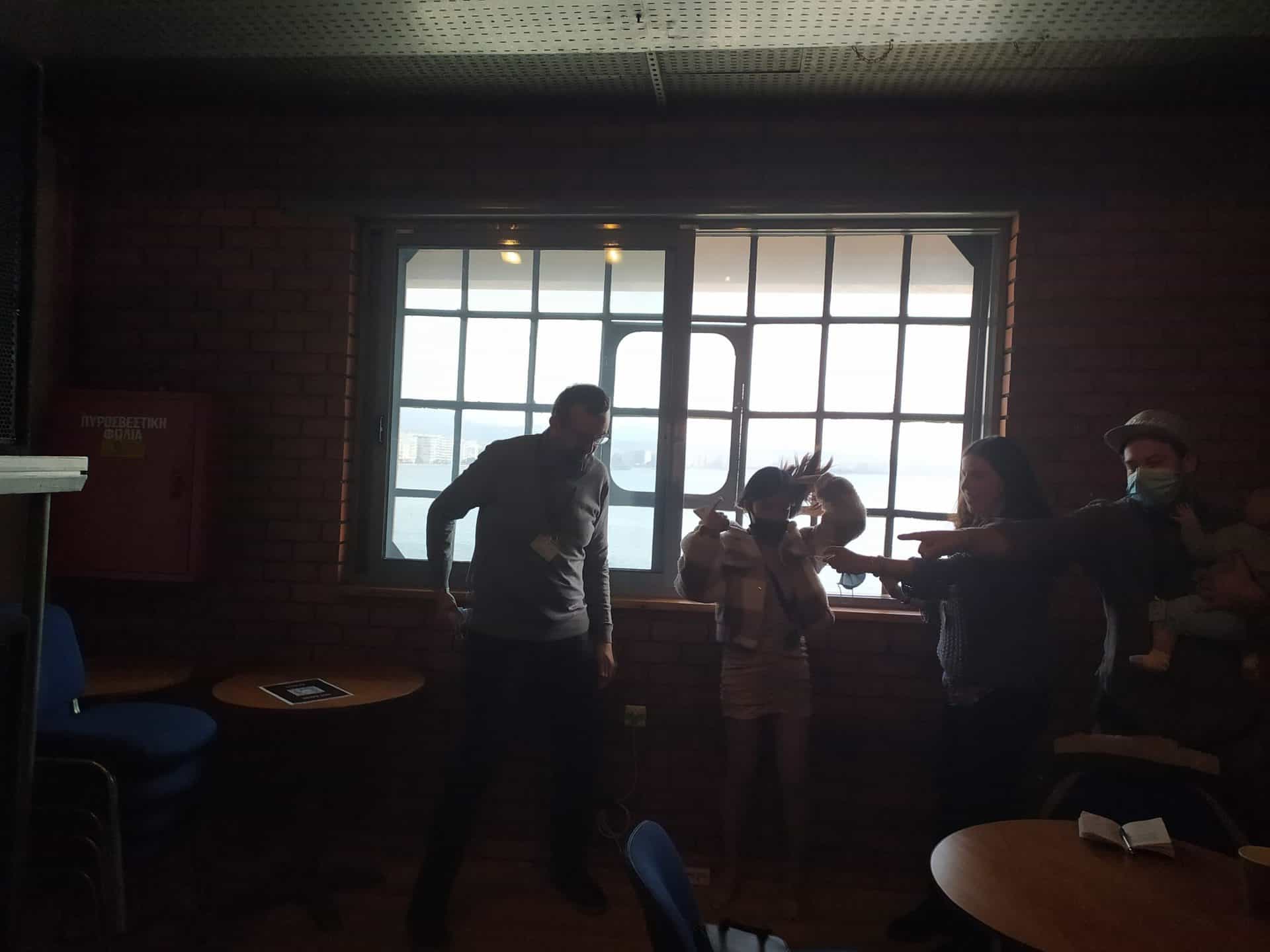
Can you tell me a bit about the cinematography, what you wanted to do in the visual aspect of the film?
We discussed a lot with Kim Ki-jin, because the film in the beginning looks like a social drama, and we wanted for the camera to create a kind of distortion, which is why we used anamorphic lenses. We wanted to create a paramorphosis, present Piraeus and Athens in a different way. Then we changed lenses, to more spherical ones, which created a confusion about what is distorted, which I felt fit the themes of the film. We wanted to enhance how the protagonist feels isolated, as she is always framed partially or in a bit of a distance, but as the film progresses she becomes more central, and it becomes her story. The progression of the character is what dictated the blocking and the framing.
What are the plans for “Holy Emy”? Will it have distribution?
Yes, it will have distribution in Greece. Also, on Sunday (November 14th) we are having our American premiere at the AFI Festival We are also applying for some festivals in the Philippines, because we really want the film to screen there.
Do you watch Filipino films?
Abigail: Not really, I watch Korean ones. I only watch a TV show titled, “It's Showtime”, a game show which is really funny.
Araceli: Before “Holy Emy”, I watched mostly Lav Diaz films, but through the film I discovered other Filipino filmmakers, like Brillante Mendoza and Mikhail Red.
Are you planning on being an actress now?
Abigail (laughter) If there are opportunities, I will grab them
And what about your future plans?
Araceli: With Joel, we are writing a new script but this time, I think it will be more romantic but also about intercultural relationships. We want the new film to be an opportunity for an adventure, like this one was.


